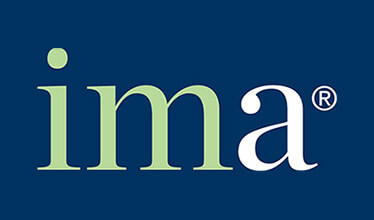Incidents of misbehavior or mistreatment of customers by staff have become a regular feature in today’s world. While airlines take the cake, it occurs across industries, be it at eating joints to sophisticated brands. Such incidents showcase a severe lack in empathy (respect) towards customers by employees.
Just this week, a mother was kicked off an American Airlines flight along with her baby because she had an ‘unidentifiable’ skin rash. The woman did not have a doctor’s diagnosis document handy at the time of her flight, but why would she? She simply stated the nature of her skin condition (ichtyosis) and assured the flight staff that the disease was harmless and not contagious in any way. This claim was confirmed and turned out to be true later as well. However, at the time of the flight, the staff was adamant in their decision not to let her or her baby fly as they did not have any ‘evidence’ that the rash on the skin was a harmless condition as the woman was claiming.
‘Capitalism leading to consumerism leading to a serious lack in empathy among human beings.’
That’s a narrative that’s been heard before. While a lot of it can be pinned down to conspiracy theorists fear mongering by painting a dystopian image of society, some of the fear can indeed be validated with facts.
For more than a hundred years in the world, businesses have moved towards an increasingly competitive paradigm. This competition has undoubtedly led to some large-scale progress in the quality of consumer goods. However, this competitive efficiency in corporations has led to a culture of rigid rules and policies to follow in order to maximise profits.
These policies are designed with the purpose of maximising efficiency in terms of profit, with very little consideration of human elements, like exceptional circumstances requiring a commonsensical approach to interpret the rules.
Human beings, and indeed all living creatures are entrusted with a degree of freedom, which defies the machine logic inherent in modern corporations.
It is this gap between modern corporate behaviour and individual human personalities, which may sound harmless enough at first, that causes bizarre yet unfortunate incidents in service industries around the world – ultimately damaging brand reputation and causing revenue loss both in the immediate and long term.
I speak specifically of the service sector right now as the interactions between the customer and the employees are far more crucial when it comes to services like airline travel, hospitality industry as opposed to consumer products like soap where product efficacy is more critical.
Speaking of airline travel, airline staff in the world over have developed somewhat of a reputation of being arrogant, rude and at times even abusive, to their customers. It seems that “the customer is king” does not hold true in the airline industry at all.
But why could that be? Moreover, does it have anything to do with the general shift towards cold-blooded policies in profit-making across global organisations?
The answer to the second question above, according to me, is undoubted yes. The airline industry incidents that we have been coming face to face with increasing frequency in recent times are nothing but a manifestation of the new corporate mantra of the 21st century: while customers are high on the priority list, there is another thing higher up on the list: turning a profit.
While at first glance turning a profit and respecting customers might sound like the same thing, it gets complicated when you start running through the data of incidents through a fine-tooth comb. The string of events of airline staff mistreating their customers, it is clear that all (or most) of these incidents are cases where the employee accused is being rigid on following airline policy, in some instances escalated to the point of physical confrontations.
However, why do these cases seem more prevalent in the airline industry compared to others? Airline staff incidents are not new in India either. The Indigo passenger fight with ground staff had been a viral story for several weeks in our media sometime back. So, what is it that makes these airline employees think they can be disrespectful to their valuable customers and get away with it?
This ties into the philosophical aspect of corporations moving more and more towards a profit-system based on external variables; variables that do not consider individuality as a factor. However, wouldn’t that mean that brands should be increasingly customer-centric instead of the other way round? Indeed that is true, and indeed that is true for the airline industry as well. However, the incidents of abuse and disrespect that have been taking place in the airline industry have been mostly in low-cost carriers. These carriers depend on a customer base that is looking to travel to their destination one way or the other, regardless of comfort factors.
That along with the fact that there is always going to be an abundance of people looking to travel through low-cost airlines to make their trips, for various business and personal purposes, often purposes that customers consider ‘more important than picking a fight with the airline staff”, sounds like a bleak picture. However, like the trends in consumerism and capitalism over the last hundred years, the peaks and troughs will be back. Low-cost airline brands are reaping their customers’ desperation at this point, but it’s only a matter of time before the laws of consumerism bring the idea of “the customer is king” back if just to stay ahead of the competition.
Competition is good, and then bad. And then good again.
You can quote me on that.











